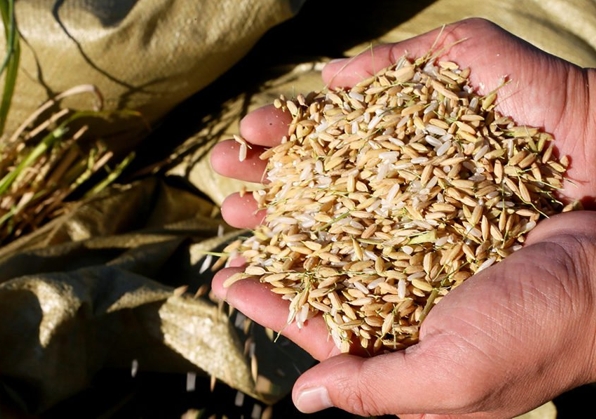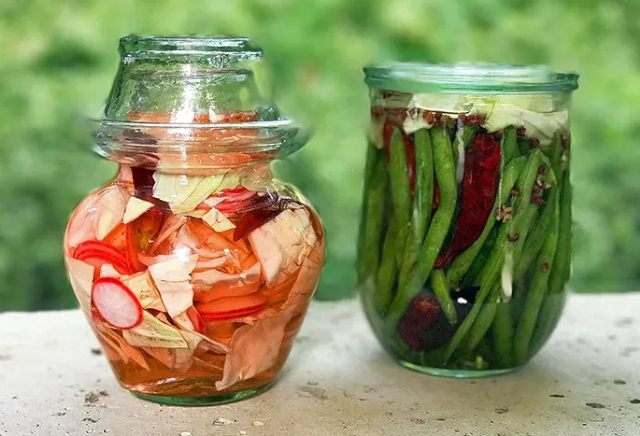The medical journals bring us new studies that suggest we could soon be fighting two widespread health problems in different, more natural ways. Rodent expriments have revealed that eating common foods could be the key to reducing our risk of hypertension (high blood pressure) and tooth decay…
 New strains of genetically-modified Rice could yield a
New strains of genetically-modified Rice could yield a
simple, safe treatment for high blood pressure…
Rice treatment for high BP deceptively simple?
Researchers reporting in the American Chemical Society’s Journal of Agricultural and Food Chemistry say they wanted to build on studies that showed certain natural compounds called natural angiotensin converting enzyme (ACE) inhibitors can control high blood pressure just as well as currently-used ACE inhibiting drugs, but without the latter’s sometimes harsh side effects.
According to an abstract of the ACS Journal report: “[N]atural ACE inhibitors found in some foods, including milk, eggs, fish, meat and plants, might have fewer side effects. But purifying large amounts of these ACE-inhibitory peptides from foods is expensive and time-consuming. Le Qing Qu and colleagues wanted to genetically modify rice – one of the world’s most commonly eaten foods – to produce a mixture of ACE-inhibitory [substances] from other food sources.”
So, they inserted a gene in common Rice that contained the genetic blueprint for nine ACE-inhibitory peptides and a blood-vessel-relaxing peptide linked together, and confirmed that the plants made high levels of the peptides. Then, they tried feeding an extract of the modified Rice to lab rats and confirmed that a very small ‘dose’ produced dramatic beneficial results on blood pressure. and the rats exhibited no obvious side effects.
The overall implication is, taking your BP meds could someday soon be as simple as eating a spoonful of genetically modified Rice.
The study team concludes that more research is called for before a ‘Rice treatment’ can be submitted for official human testing. But optimism runs high…
 Szechwan Fermented Pickles could provide a natural compound to
Szechwan Fermented Pickles could provide a natural compound to
treat common but currently intractable oral hygiene issues…
Harnessing Pickle Power to tame tooth decay?
Researchers from the American Associates of Ben-Gurion University of the Negev cooperated with counterparts in Southwest China to collect and evaluate 14 different types of Sichuan pickles in an effort to track down a possible dietary source of compounds that were apparently responsible for reducing oral afflictions including tooth decay in local residents.
They discovered that a strain of Lactobacilli (L. plantarum K41) found in Sichuan pickles reduced Streptococcus mutans by 98.4%. Dental caries (cavities) are caused by S. mutans commonly found in the human oral cavity as plaque and is a significant contributor to tooth decay.
According to an abstract of the team’s study report: “When fruits and vegetables are fermented, healthy bacteria break down the natural sugars. These bacteria, also [already] known as probiotics, not only preserve foods but offer numerous benefits, including immune system regulation, stabilization of the intestinal microbiota, [and] reducing cholesterol levels.”
While the team does not go as far as to recommend that we all add Sichuan Pickles to our diets to ward off cavities (and brutally-high dental bills), it does not rule out the development of medications or mouthwashes containing L. plantarum K41 to combat what are currently tough-to-control oral issues.
My take
I find the idea, that natural or naturally-based treatments may ultimately be recognised as the best ones to address afflictions such as hyertension and tooth decay, an attractive and elegant one which not only fits beautifully with the Buddhist/Yogic search for enlightenment and serenity within one’s self but, coincidentally, with my own notion that common sense and simplicity are the keys to well being.
The ultimate blend of the two? Maybe just: “Keep it simple, grasshopper!”
~ Maggie J.

